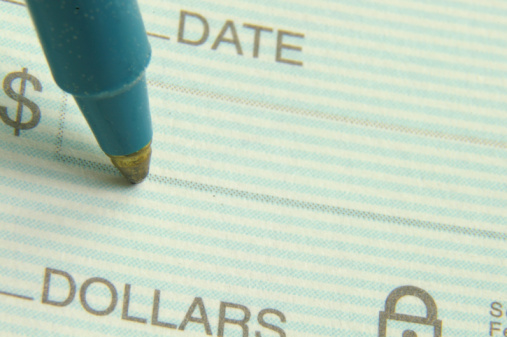Solo 401k Retirement Plans for Expats
I am often asked if an Expat can invest in a retirement plan. The simple answer is yes, there are retirement plans for Expats. Yes, if you are living and working offshore, you can use a retirement plan to reduce your taxes. Yes, the Expat can use a Solo 401k plan to save on taxes!
The US government treats all of its citizens the same. It doesn’t matter whether you are living in Panama City, Florida, or Panama City, Panama. So long as you carry a US passport, Uncle Sam wants his cut. Because you are taxed the same, Expats have access to all of the same deductions and tax savings plans as do people living in the US.
If you are living and working abroad, your first line of defense against the US tax man is the Foreign Earned Income Exclusion. With the FEIE, you can exclude up to $97,600 in 2013 of salary or business income from Federal income tax. This is the major tax advantage of living offshore…and the platform on which all other benefits, such as operating your business through an offshore corporation, are founded.
That is to say, if you are self-employed, or running a small business, and you qualify for the Foreign Earned Income Exclusion, you should be utilizing a foreign corporation. I have covered how to do this in great detail in various postings, so I won’t belabor the point here. For more information, see: Eliminate US Tax in 5 Steps with an Offshore Corporation.
Well, what can you do if your business has net profits in excess of FEIE, which is $97,600 (single) or $195,200 if a husband and wife are both working in the business? You can elect to retain the balance in to your corporation and defer US tax until you take it out. Though, you will pay US tax on all capital gains and interest income earned on those retained earnings.
A better solution might be to place that money in a US qualified retirement plan. When you put money in a retirement plan, you get the same benefits as someone working in the good old U.S. of A. You can select a traditional plan and take a tax deduction when you pay in, or setup a ROTH and pay no tax when you take the money is distributed to you.
Note: The Expat also gets to take a standard deduction, or all of the same itemized deductions as someone living in the US…including mortgage interest. You should only consider a retirement plan if your net income exceeds the FEIE and your allowed deductions. For example, it is unlikely that a retirement plan will be worthwhile for someone netting $110,000 from his or her business.
The best retirement plan vehicle for most self-employed Expats is the Solo 401(k). Qualified Expat small business owners can contribute much more on an annual basis than you can to a typical Individual Retirement Accounts, and even than to other small business plans such as the Simplified Employee Pension Individual Retirement Accounts. Also, with a Solo 401(k) you also have the option of making either tax-deferred (traditional) or tax-exempt (Roth) contributions.
- For the high net worth individual, who wants to put away more than, say $50,000 per year, a defined benefit plan may be required.
- For the very sophisticated entrepreneur, with up to $1.2 million to in excess profits, an offshore captive insurance company might be in order.
Solo 401(k) Retirement Plans for Expats
Your offshore corporation can establish a Solo 401(k) plan, provided that the only eligible plan participants are you (the business owner) and your U.S. spouse (if you have one). Generally this means you won’t be able to set up a Solo 401(k) if you have other U.S. employees. If you have US employees, you might consider segmenting them in to their own entity or converting them to independent contractors.
- If those employees are offshore, converting them to independent contractors means you will need to provide IBCs for them so they are not caught in the web of paying self-employment tax.
Remember that this article is for the entrepreneur who is living and working abroad, qualifies for the Foreign Earned Income Exclusion, and is operating through an offshore IBC. As such, you have a lot more flexibility than someone living and working in the United States.
Contributing to a Solo 401(k) Plan
Similar to other 401(k) plans, Solo 401(k) plans allow contributions in the following ways:
- An employee contribution of up to $17,500 if younger than age 50, or $23,000 if age 50 or above in 2013
- An employer (or profit-sharing) contribution of:
- Up to 25% of net adjusted business profits for those not required to pay self-employment tax
- Up to 20% of net adjusted business profits for those who are required to pay self-employment tax
As an expat entrepreneurs, your salary is designated as the profit-sharing contribution. The maximum annual total limit for both types of contributions is $51,000, or $56,500 if age 50 or over for tax year 2013.
U.S. Tax Implications
Pretax option: Qualified contributions (employee and profit sharing) can be deducted from U.S. taxable earned income at the time of contribution. These contributions then grow on a tax-deferred basis until you begin to withdraw them after age 59½, at which time they will be taxed as ordinary income at your future U.S. marginal tax rate.
After-tax (Roth) option: If your 401(k) plan documents allow it, the employee contribution portion can also be made on an after-tax (nondeductible) basis, and contributed to a separate Roth 401(k) account that will growth free of U.S. tax. (Note that profit-sharing or employer contributions, which are not mandatory, cannot be made to Roth options at this time.)
Whether it’s better for you to make pretax or Roth contributions to a 401(k) plan will depend on your personal situation. If your taxable AGI will increase in future years, then you want to focus on Roth contributions. If your effective tax rate will decrease in the future (after retirement), then you want to focus on traditional plans.
Yes, it is possible for the Expat’s effective tax rate to increase after retirement. If most of your income was excluded by the FEIE, your effective rate might be near zero. After retirement, you might begin selling stocks, taking distributions, etc., all of which is taxable in the US. Therefore, an Expat’s effective tax rate will often rise after retirement.
Special Consideration for Expats: Unexcluded Earned Income Requirement
Note that your Solo 401(k) contribution must be made with unexcluded earned income (such as wages or self-employment income). If you either have no earned income or if you’re excluding all earned income from U.S. tax using the Foreign Earned Income Exclusion, you cannot contribute to a Solo 401(k).
This is one of the reasons I stated above that you should only consider a retirement plan if your income exceeds the Foreign Earned Income Exclusion. Another is that it makes no sense to lock money in to a retirement account if you can take it as salary tax free.
If you’re currently excluding all of your earned income using FEIE, but you could receive similar benefits by using the Foreign Tax Credit, rather than the FEIE, it could make sense to revoke using FEIE in order to contribute to a Solo 401(k) plan. In other words, if you pay a lot of local tax on your salary in the country you live, you may find that switching to using the foreign tax credit won’t leave you worse off in terms of U.S. tax and will allow you to invest in a Solo 401(k).
Note: If you make this switch and then change your mind within five years, you’ll need to apply for IRS approval to resume using FEIE by requesting a ruling from the IRS.
Summary
Solo 401(k)s can be a great way for a U.S. expat with an income from an offshore corporation of $200,000+ per person (husband and wife) to save money each year in a U.S. tax-advantaged account without locking that money in to their corporation as retained earnings.
Remember that retained earnings in an offshore corporation are usually distributed out as a non-qualified dividends. This means that these distributions will be taxed as ordinary income. You may be able to defer US tax for many years, but once you take out these profits, the tax hit will be significant.
I also note that passive income made by your offshore corporation will likely be taxable as earned. While a retirement account allows you to defer such tax, or pay zero capital gains (Roth), an offshore corporation usually has no such preferred tax status.
As you can see, there are a number of issues to consider when creating a retirement account and an offshore tax and business structure. If you are thinking about moving you and your business offshore, contact me at info@premieroffshore.com for a free confidential consultation. I will be happy to work with you to develop a plan that will reduce your worldwide tax burden.
Helpful Links:
- IRS Publication 560, “Retirement Plans for Small Businesses”
http://www.irs.gov/publications/p560/index.html - IRS Publication 4222, “401(k) Plans for Small Businesses”
http://www.irs.gov/pub/irs-pdf/p4222.pdf - One Participant 401(k) Plans
http://www.irs.gov/retirement/article/0,,id=238750,00.html












Leave a Reply
Want to join the discussion?Feel free to contribute!